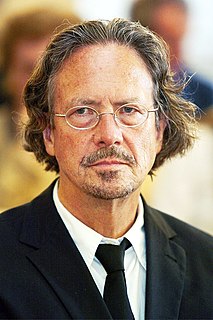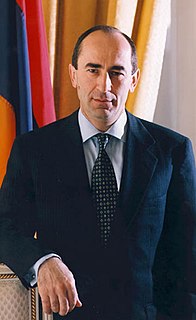A Quote by David Hume
Disbelief in futurity loosens in a great measure the ties of morality, and may be for that reason pernicious to the peace of civil society.
Related Quotes
It seems then, say I, that you leave politics entirely out of the question, and never suppose, that a wise magistrate can justly be jealous of certain tenets of philosophy, such as those of Epicurus, which, denying a divine existence, and consequently a providence and a future state, seem to loosen, in a great measure, the ties of morality, and may be supposed, for that reason, pernicious to the peace of civil society.
[T]here are, at bottom, basically two ways to order social affairs, Coercively, through the mechanisms of the state - what we can call political society. And voluntarily, through the private interaction of individuals and associations - what we can call civil society. ... In a civil society, you make the decision. In a political society, someone else does. ... Civil society is based on reason, eloquence, and persuasion, which is to say voluntarism. Political society, on the other hand, is based on force.
In a pluralistic society like ours, I think the ability to resist hate comes from cultivating a civil society that, on the one hand, nurtures the freedom of each group to pursue their faith and distinctive way of life, while, at the same time, fostering the ties that bind us together into a genuine broader community.
The Jew continues to monopolize money, and he loosens or strangles the throat of the state with the loosening or strengthening of his purse strings...He has empowered himself with the engines of the press, which he uses to batter at the foundations of society. He is at the bottom of...every enterprise that will demolish first of all thrones, afterwards the altar, afterwards civil law.
The strength and weakness of physicists is that we believe in what we can measure. And if we can't measure it, then we say it probably doesn't exist. And that closes us off to an enormous amount of phenomena that we may not be able to measure because they only happened once. For example, the Big Bang. ... That's one reason why they scoffed at higher dimensions for so many years. Now we realize that there's no alternative.
Before any man can be considered as a member of Civil Society, he must be considered as a subject of the Governour of the Universe: And if a member of Civil Society, do it with a saving of his allegiance to the Universal Sovereign. We maintain therefore that in matters of Religion, no man's right is abridged by the institution of Civil Society and that Religion is wholly exempt from its cognizance.
Civil society people - these are the people - civil society groups are the people who need to monitor the aid to ensure that the aid is directed to what it is supposed to. And in order for them to do so, they need to have the space, they need to have the freedom, and they need to have the right to demonstrate, and to petition their government. They can't do that in Ethiopia; they can't do that in Eritrea; and so this is why I was cautioning that we may be repeating some of our old mistakes.
But, historians, and even common sense, may inform us, that, however specious these ideas of perfect equality may seem, they are really, at bottom, impracticable; and were they not so, would be extremely pernicious to human society. Render possessions ever so equal, men's different degrees of art, care, and industry will immediately break that equality. Or if you check these virtues, you reduce society to the most extreme indigence; and instead of preventing want and beggary in a few, render it unavoidable to the whole community.






































